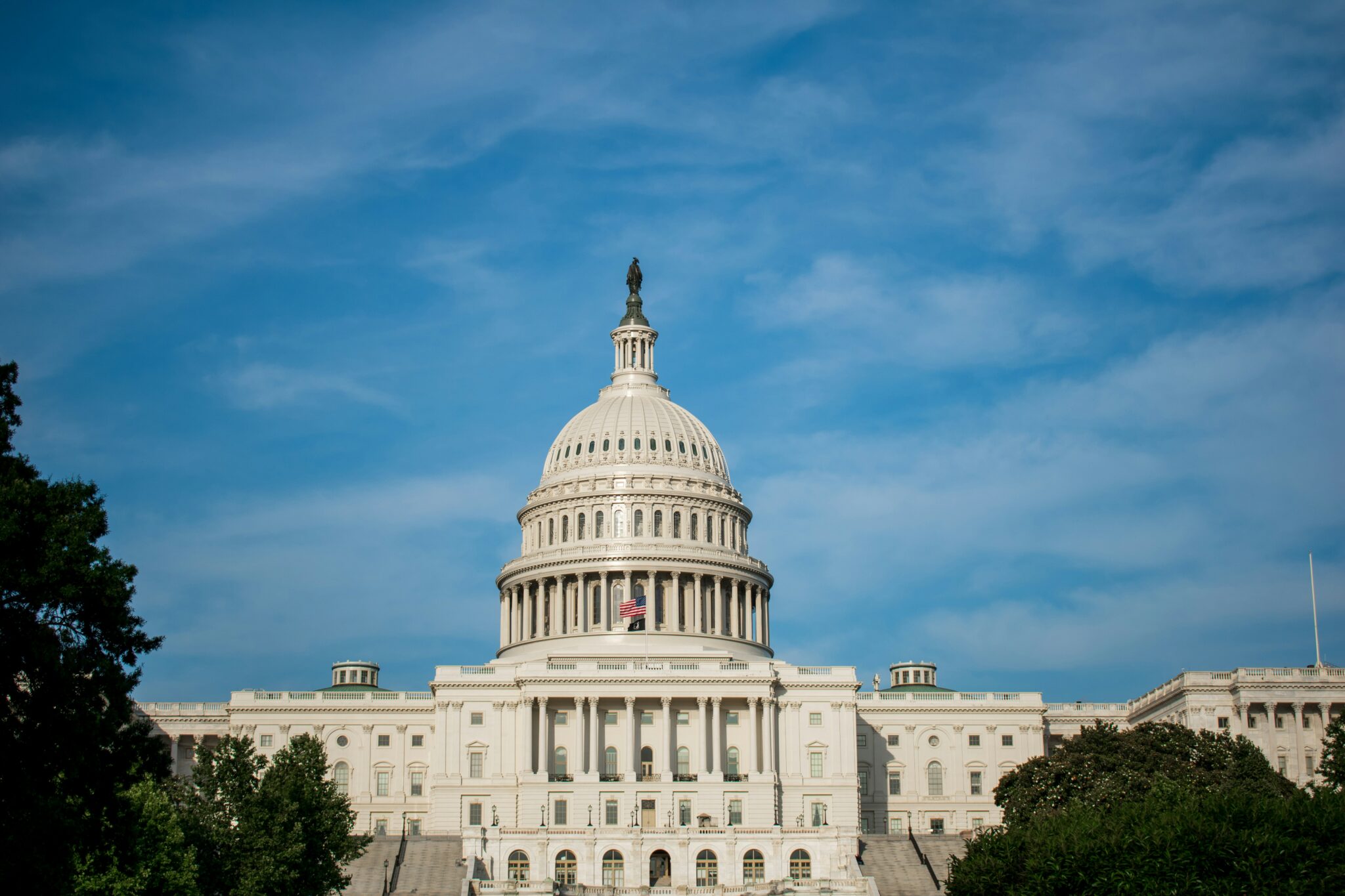
Ellie Samuels is a student at Harvard Law School.
A Detroit city sanitation worker pumped breast milk in a McDonald’s bathroom on her manager’s orders. Nurses in Michigan raced to a distant lactation room to pump, sacrificing most of their fifteen-minute break time on the journey. In Oklahoma, a manager stood outside the lactation room, timing a worker as she finished pumping, then threatened to discipline her if she continued breastfeeding her infant after four months. These stories were featured in a 2019 Huffington Post investigation covering hundreds of breastfeeding-related complaints made to the U.S. Department of Labor (DOL). In another report by the ACLU, the organization describes an emergency room worker forced to pump next to dried blood and a cashier making $7.55 an hour fired for breastfeeding her baby in a car during breaks.
Breastfeeding parents usually pump every two to four hours for around fifteen to twenty minutes per session. The American Academy of Pediatrics and the World Health Organization recommend six months of exclusive breastfeeding to support infant health, a difficult proposition in a country lacking guaranteed paid leave. Without adequate time to pump at work, breastfeeding parents can experience painful engorgement (sometimes resulting in mastitis, a painful breast infection, which the Oklahoma worker eventually developed). Many workers are forced to stop pumping fully, robbing them of control over whether to nurse their infants. The CDC has found that Black women are more likely than others to stop breastfeeding early, as they disproportionately work jobs with inflexible hours and limited leave. Low-wage workers suffer disproportionately as well; they are half as likely to have access to pumping time and space in the workplace.
The Providing Urgent Maternal Protections (“PUMP”) for Nursing Mothers Act, enacted in 2023, is a landmark new law that ensures millions of workers have time and space to pump at work. Here’s a look at the PUMP Act’s key provisions, unfortunate limitations, and the next steps needed to fully support breastfeeding workers and their families.
The Development of Breastfeeding Legislation
In 1970, the Pregnancy Discrimination Act amended Title VII to prohibit discrimination based on pregnancy and pregnancy-related conditions. This encompasses breastfeeding discrimination, according to courts and the Equal Employment Opportunity Commission, but does not require employers to affirmatively accommodate breastfeeding workers.
In 2010, the Break Time for Nursing Mothers law passed as part of the Affordable Care Act. The law required employers covered under the Fair Labor Standards Act (FLSA) to provide reasonable break times and a non-bathroom private space for pumping. Unfortunately, the law left out all overtime exempt employees, as well as agricultural and transportation workers. According to the U.S. Breastfeeding Committee, this meant “nearly one in four women of childbearing age were not covered by the Break Time law.” The provision also had no real enforcement mechanism; DOL noted that the provision “does not specify any penalties” for employer violations. Additionally, most employees could not sue for unpaid wages or overtime because the law did not require pumping time be paid. One federal court noted the “toothlessness” of the provision and “absurdity” of the result that an employee fired for requesting breastfeeding accommodations would have no legal recourse. There have been bills introduced to expand the Break Time provision every year since 2010.
In 2023, Congress finally enacted the PUMP Act. The law fills in many of the Break Time provision’s gaps, expanding protections to nine million more workers by including overtime-exempt employees. It also creates concrete enforcement mechanisms, allowing workers to file a complaint with the DOL or bring a civil lawsuit for money damages against their employer. The law covers workplaces of all sizes, although companies with under fifty employees can be excused by demonstrating “undue hardship.” The PUMP Act had bipartisan cosponsors and won the support of the Chamber of Commerce. The law passed with 92 votes in the Senate and 276 votes in the House, practically unheard of in our historically unproductive and divided Congress. In January, DOL published guidance to help employers adjust to their workers’ lactation needs, including examples of reasonable accommodations.
Concessions and Exceptions
However, the passage of the PUMP Act was the result of notable concessions. Railway and motorcoach industries won’t implement the law until 2025. Gig and contract workers are excluded, as is the case in other crucial labor and employment provisions. Additionally, flight attendants and pilots are entirely exempted. The airline worker exclusion was the result of intense industry pressure; airlines rejected a compromise provision that would have mandated workers not pump during take-off and landing. The Nation explains that the airlines “were willing to be covered under the federal law so long as they were exempted from state and local lactation laws,” which “wasn’t a compromise the unions could accept.” State and local laws have the potential to be more protective than the PUMP Act, such as the California law, which requires employers provide a refrigerator for storing milk.
The flight attendant concession is particularly disappointing, with dire consequences in the female-dominated field. Cheryl Lebedevitch at the U.S. Breastfeeding Committee explains that airlines could feasibly accommodate lactation, as “[s]afety protocols are already in place to ensure flight attendants can step away from their duties when the plane is at cruise altitude to attend to other necessary physiological or personal needs, like using the restroom.” Yet the Association of Professional Flight Attendants (APFA) and Association of Flight Attendants (AFA) found in 2021 that 88% of their union members had no time to lactate between flights, and 75% stopped breastfeeding earlier than planned, while others simply quit.
Breastfeeding for All
In a country with disintegrating reproductive freedom and abysmal maternal healthcare, the passage of the PUMP Act marks a triumph for the health, autonomy, and job security of millions of workers and their families. Yet gaps persist. To continue championing breastfeeding workers’ rights, we must:
- Support the efforts of unions and exempted workers to win protections. The ACLU sued Frontier Airlines in 2021, winning accommodations for pregnant and postpartum workers through settlement. Despite being omitted from the PUMP Act, the AFA was able to negotiate breastfeeding accommodations in their contract with Alaska Airlines.
- Pressure industries to meet the needs of their workers. A Boeing employee filed a DOL complaint after finding herself competing with twenty other workers for the same lactation room. In response, Boeing doubled their capacity for lactation space, launched a “mobile nursing pod” pilot program, and will be paying for employees traveling to work to mail their breast milk back home.
- Pass expansive state and local breastfeeding laws. Over half of states have laws that protect breastfeeding workers’ rights, including anti-discrimination protections, mandated break time and lactation space, and reasonable accommodation requirements. These laws can be broader than the PUMP Act and protect the workers excluded from the law.








Daily News & Commentary
Start your day with our roundup of the latest labor developments. See all
February 20
An analysis of the Board's decisions since regaining a quorum; 5th Circuit dissent criticizes Wright Line, Thryv.
February 19
Union membership increases slightly; Washington farmworker bill fails to make it out of committee; and unions in Argentina are on strike protesting President Milei’s labor reform bill.
February 18
A ruling against forced labor in CO prisons; business coalition lacks standing to challenge captive audience ban; labor unions to participate in rent strike in MN
February 17
San Francisco teachers’ strike ends; EEOC releases new guidance on telework; NFL must litigate discrimination and retaliation claims.
February 16
BLS releases jobs data; ILO hosts conference on child labor.
February 15
The Office of Personnel Management directs federal agencies to terminate their collective bargaining agreements, and Indian farmworkers engage in a one-day strike to protest a trade deal with the United States.